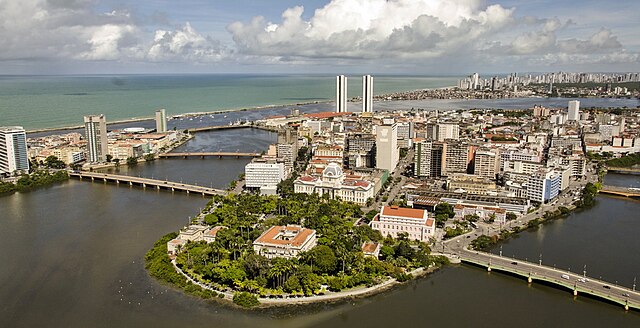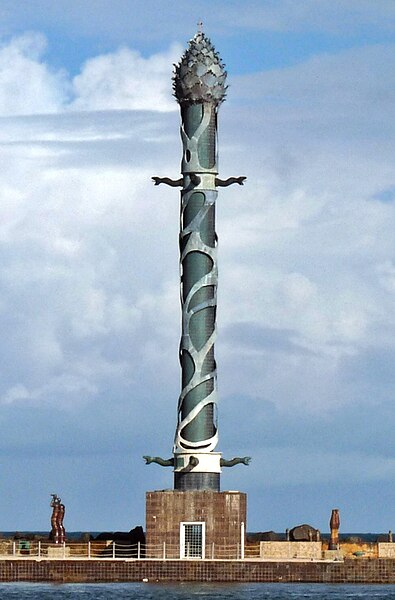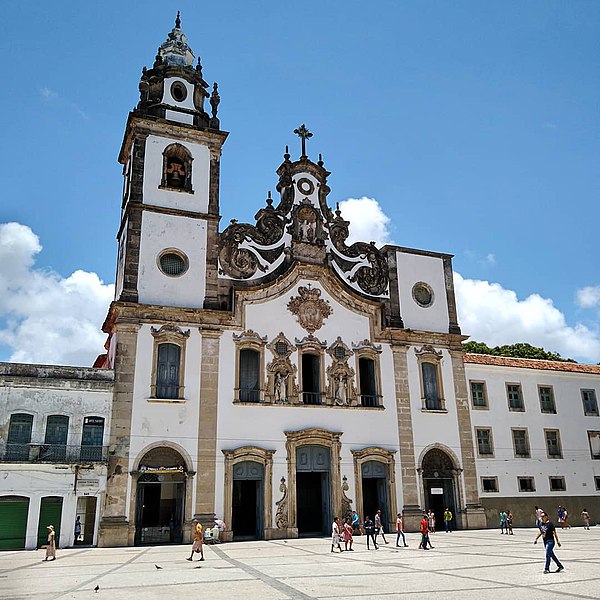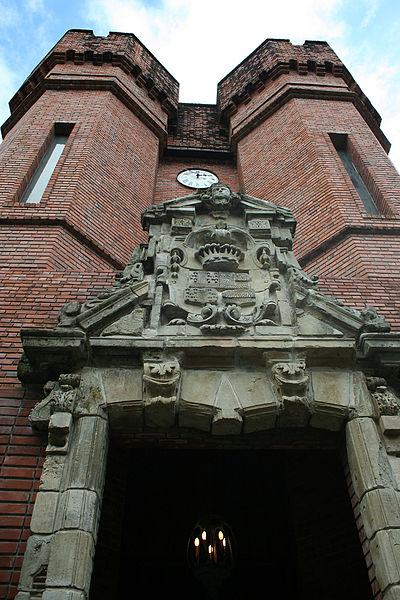Brazilian Portuguese is the set of varieties of the Portuguese language native to Brazil and the most influential form of Portuguese worldwide. It is spoken by almost all of the 203 million inhabitants of Brazil and spoken widely across the Brazilian diaspora, today consisting of about two million Brazilians who have emigrated to other countries. With a population of over 203 million, Brazil is by far the world's largest Portuguese-speaking nation and the only one in the Americas.
Opening of the 15th Conference of Ministers of Justice of the Community of Portuguese Language Countries in 2017. Former Brazilian president Michel Temer with former Brazilian justice minister Torquato Jardim.
2017 Debate on the Portuguese language in the Senate of Brazil.
Museum of the Portuguese Language in São Paulo.
2014 Interactive public hearing to debate the Portuguese Language Orthographic Agreement in Brasília.
Recife is the state capital of Pernambuco, Brazil, on the northeastern Atlantic coast of South America. It is the largest urban area within both the North and the Northeast Region of Brazil. It is the largest city in Pernambuco state, and the fourth-largest urban area in all of Brazil, home to roughly 4,054,866 people including the adjacent suburbs; the metro population of the city of Recife was 1,653,461 in 2020. Recife was founded by the colonial Portuguese Empire in 1537, serving as the main harbor of the Captaincy of Pernambuco—known for its large-scale production of sugar cane. At one point, it was known as Mauritsstad, when it served as the capital city of the 17th century colony of New Holland of Dutch Brazil. Situated at the confluence of the Rivers Beberibe and Capibaribe, before they drain into the South Atlantic Ocean, Recife is a major seaport along the Brazilian Atlantic coast. Its name is an allusion to the stone reefs that are present offshore. Together with the urban presence of the Beberibe and Capibaribe Rivers and their tributaries, the many additional unique, small islands—and more than 50 bridges linking them throughout the city—create a distinct maritime or "riviera" atmosphere, leading to Recife being known as the "Venice of Brazil".

Image: Antonio Vaz island Recife, Pernambuco, Brazil (cropped)
Image: Torre de Cristal Recife PE(2) (cropped)
Image: Basílica do Carmo Recife (PE)
Image: Castelo de Brennand








